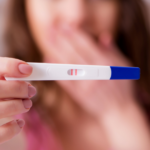Embarking on the journey of pregnancy brings joy and anticipation, but it also comes with a myriad of questions and concerns, especially when it comes to travel. One common query that often arises is the safety of bumpy boat rides during this delicate period. In this article, we will navigate the waves of uncertainty, explore the dynamics of boat rides, and address the crucial question: Are bumpy boat rides safe during pregnancy?
Let’s unravel the complexities, drawing on expert opinions, real-life experiences, and practical advice, ensuring expecting mothers have the information they need to make informed decisions about their maritime adventures.
Importance of safety during pregnancy

Ensuring safety during pregnancy is paramount for the well-being of both the expectant mother and the developing fetus. Pregnancy introduces a heightened sensitivity to external factors, and any compromise in safety can have significant consequences. The importance of safety during this period extends beyond physical well-being, encompassing emotional and psychological aspects. Protecting the unborn child from potential risks, including those posed by activities like travel, becomes a top priority. By prioritizing safety, expecting mothers contribute to a healthy pregnancy experience, fostering optimal conditions for fetal development and overall maternal health. It underscores the responsibility to make informed choices that promote a secure and nurturing environment.
Read to Know more: Is Bio Oil safe for pregnancy? : Glowing Through Pregnancy
Can a boat ride cause placental abruption?
In general, a routine boat ride is unlikely to cause placental abruption, which is a severe condition where the placenta separates from the uterus before delivery. Placental abruption is typically associated with significant trauma, and the jostling or movement experienced during a regular boat ride is usually not intense enough to pose a direct risk.
However, it’s essential to consider the type of boat, sea conditions, and the individual’s health. Extreme turbulence, rough waters, or activities on a smaller, less stable boat could increase the risk of discomfort or injury. Still, the likelihood of causing placental abruption remains low in typical boating scenarios.
Understanding Bumpy Boat Rides
Navigating the nuances of bumpy boat rides requires a comprehensive understanding of the various factors contributing to the turbulence. The bumpiness experienced during boat journeys is influenced by a combination of elements, including the type of boat, water conditions, and speed. Different vessels may provide varying levels of stability, impacting the overall smoothness of the ride. Waves, currents, and the overall maritime environment determine the ride’s bumpiness. Acknowledging these factors is essential for pregnant women contemplating such journeys, enabling them to make informed decisions about the potential risks involved. By delving into the intricacies of bumpy boat rides, individuals can better assess their comfort levels, allowing for a more confident and secure experience on the water while safeguarding the well-being of both the expectant mother and the developing baby.
Can bumpy rides affect pregnancy?
A bumpy ride during pregnancy, whether in a car, on a boat, or another mode of transportation, generally poses minimal risk to the pregnancy itself. The amniotic fluid and the uterus act as protective cushions for the developing fetus. While minor jolts or bumps are unlikely to cause harm, pregnant individuals need to prioritize comfort and safety.
Excessive bouncing or jostling, particularly in the later stages of pregnancy, can lead to discomfort and may increase the risk of injury. It’s advisable to opt for smoother modes of transportation, avoid rough terrains, and use support such as seat belts when applicable. Pregnant individuals are encouraged to consult with their healthcare provider for personalized advice, especially if the pregnancy is high-risk or if there are specific concerns about travel-related activities. Overall, striking a balance between staying active and ensuring the well-being of the pregnant and baby is crucial.
How many weeks pregnant can you go on a boat?

The ability to go on a boat during pregnancy depends on various factors, including the individual’s health, the type of boat, and the sea conditions. In general, many pregnant individuals can continue to go on a boat throughout their pregnancy, especially during the first and second trimesters. However, as the pregnancy progresses, some considerations must be considered.
Opting for larger, more stable boats can provide a smoother ride and reduce the risk of discomfort. Additionally, it’s advisable to avoid rough waters and extreme conditions. Most healthcare providers suggest that pregnant individuals can engage in boating until late in their pregnancy. Still, it’s crucial to consult with a healthcare professional for personalized advice based on individual health, the specific stage of pregnancy, and any potential risk factors. Always prioritize safety, comfort, and open communication with your healthcare provider when considering boat travel during pregnancy.
Types of boats and their impact on the ride
Boats come in various types, each with a distinct impact on the ride experience. Speed boats, designed for thrill-seekers, offer a fast and exhilarating journey through the water, emphasizing agility and wave-cutting capabilities.
Fishing boats prioritize stability, providing a steady platform for anglers to enjoy their favorite pastime.
With their flat deck design, Pontoon boats offer a leisurely and stable ride, perfect for socializing or relaxing.
Sailboats harness the power of the wind, delivering a unique and eco-friendly experience with serene glides across the water.
Canoes and kayaks focus on maneuverability, allowing for intimate exploration of narrow waterways. Yachts, epitomizing luxury, ensure a lavish and comfortable voyage,
while electric boats contribute to eco-friendly navigation with quiet and smooth rides.
Houseboats create a homey atmosphere on the water, offering a distinctive live-aboard experience. Inflatable boats prioritize portability and convenience, making them versatile for various water activities.
Jet boats excel in navigating shallow waters thanks to their unique propulsion system.
Hybrid boats combine features for versatility, offering a blend of functionalities for a personalized boating experience.
Each boat type contributes to the diversity of the boating world, catering to different preferences and purposes.
Safety Concerns for Pregnant Women
During pregnancy, it’s natural for expectant mothers to prioritize the safety and well-being of their developing fetus. One particular concern that often arises is the impact of bumpy rides on the mother and the unborn child. The risks associated with bumpy rides during pregnancy are multi-faceted and deserve careful consideration.
Understanding the Risks:
Bumpy rides can pose potential risks to pregnant women, whether in a vehicle or on certain terrains. The jolts and vibrations experienced during such rides may lead to discomfort for the mother, but more importantly, they raise concerns about the well-being of the developing fetus.
Impact on the Developing Fetus:
The developing fetus is surrounded by amniotic fluid, which provides a degree of protection from external movements. However, abrupt and forceful motions, such as those experienced during bumpy rides, can potentially impact the fetus. The primary concern lies in the risk of placental abruption or preterm labor, both of which can have severe consequences for the pregnancy.
Placental Abruption:
Placental abruption occurs when the placenta partially or completely separates from the uterine wall before delivery. The sudden jolts and shocks from bumpy rides may increase the risk of this potentially life-threatening condition. Placental abruption can lead to reduced oxygen and nutrient supply to the fetus, resulting in complications such as growth restriction and developmental issues.
Preterm Labor:
Bumpy rides may also trigger preterm labor, bringing about contractions and the potential onset of labor before the baby is fully developed. Preterm birth can lead to a range of health problems for the newborn, including respiratory issues, low birth weight, and developmental delays.
Minimizing Risks:
To ensure the safety of both mother and fetus, pregnant women are advised to take precautions when it comes to bumpy rides. Wearing a seatbelt, adjusting the vehicle’s suspension, and choosing routes with smoother terrain are simple yet effective ways to minimize the impact of vibrations and jolts.
Tips for Safe Boat Travel During Pregnancy
Traveling by boat during pregnancy requires additional considerations to ensure the safety and well-being of both the expectant mother and the baby. Here are some tips for safe boat travel during pregnancy:
Consult with Your Healthcare Provider:
Before planning any boat travel, consult your healthcare provider to ensure it is safe for you and your baby. Your doctor can provide personalized advice based on your health and pregnancy.
Choose a Stable Boat:
Opt for a stable and well-maintained boat. Larger boats are more stable and provide a smoother ride. Avoid small, unstable vessels that may result in a bumpy ride.
Wear a Life Jacket:
Always wear a properly fitting life jacket, especially if traveling on a smaller boat. Ensure the life jacket is approved for your weight and the type of boating activity.
Stay Hydrated:
Dehydration can be a concern during pregnancy. Bring plenty of water with you and stay hydrated throughout the journey.
Plan Regular Breaks:
Plan for regular breaks to stretch your legs and use the restroom. Prolonged periods of sitting can lead to discomfort and increase the risk of blood clots.
Protect Yourself from the Sun:
Use sunscreen to protect your skin from harmful UV rays, and wear a wide-brimmed hat and sunglasses. Pregnancy can make your skin more sensitive to the sun.
Avoid Rough Waters:
Choose routes and travel times when the waters are calm. Avoid rough seas, as the constant rocking can be uncomfortable and potentially harmful during pregnancy.
Pack Snacks:
Bring healthy snacks to maintain your energy levels. Nausea can be a concern during pregnancy, so having light snacks on hand can help.
Inform the Captain:
If traveling on a chartered boat, inform the captain about your pregnancy. They may be able to make accommodations to ensure your comfort and safety.
Be Mindful of Motion Sickness:
Pregnant women may be more prone to motion sickness. Consider taking precautions, such as sitting in the middle of the boat where motion is less pronounced and focusing on the horizon.
Know the Location of Medical Facilities:
Be aware of the location of medical facilities along your route in emergencies. Have a plan in place for quick access to medical help if needed.
Conclusion:
In conclusion, bumpy boat rides during pregnancy are generally considered safe, as the amniotic fluid and the uterus provide a protective environment for the developing fetus. However, pregnant individuals need to prioritize comfort and safety by choosing stable boats, avoiding rough waters, and consulting with their healthcare provider before embarking on any boat trip, especially if the pregnancy is high-risk or if there are specific health concerns. While routine boat rides are unlikely to cause significant harm, it’s crucial to balance staying active and ensuring the well-being of both the pregnant and baby.
FAQ
Can bumpy boat rides harm the baby?
Generally, routine bumpy boat rides are unlikely to harm the baby, as the amniotic fluid and uterus act as protective buffers. However, excessive jostling should be avoided.
What precautions should I take during a boat trip while pregnant?
Choose stable boats, avoid rough waters, wear a properly fitting life jacket, stay hydrated, and consult your healthcare provider before traveling.
Is it safe to go on a boat in the first trimester of pregnancy?
Many pregnant individuals can safely go on a boat during the first trimester, but it’s crucial to consider individual health and consult a healthcare provider.
Can a bumpy boat ride cause miscarriage?
Routine bumpy rides are not typically associated with an increased risk of miscarriage. However, if there are concerns, it’s advisable to consult with a healthcare provider.
Are ferry rides safe during pregnancy?
In general, ferry rides on stable vessels are considered safe during pregnancy. Pregnant individuals should prioritize comfort and follow safety guidelines.
















